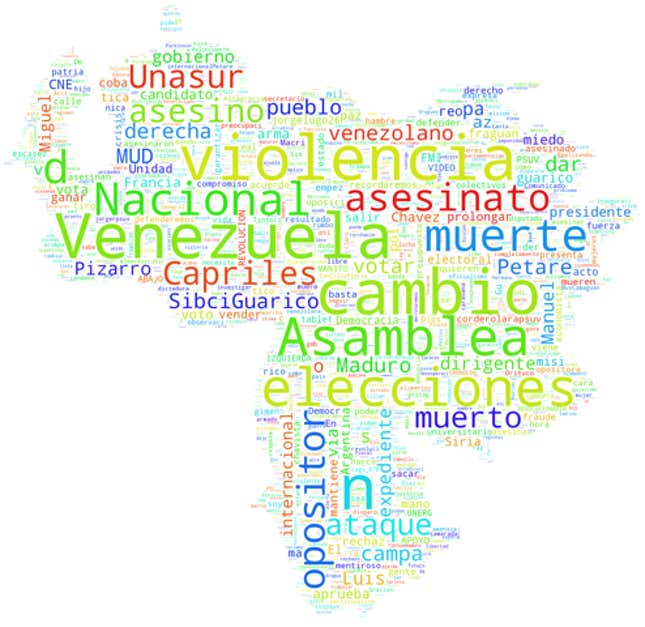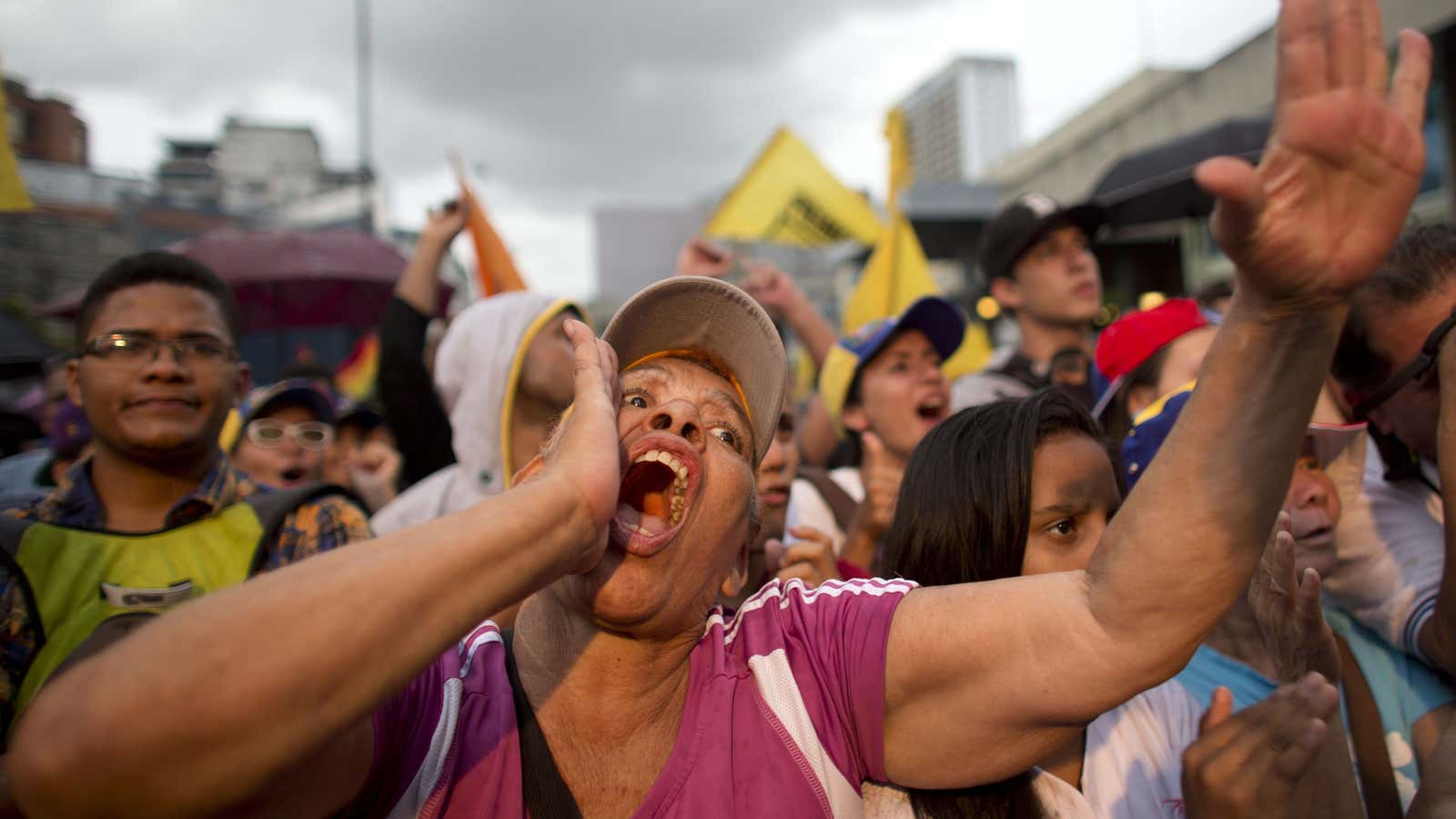Venezuelans are preparing for crucial parliamentary elections on Dec. 6 that could give the opposition a real voice for the first time in almost two decades. As they get ready to head to the polls, violence is forefront on their minds.
An analysis of thousands of election-related tweets found that after common words like “Venezuela” and “election,” the most prevalent were “violence” and related terms such as “death” and “murder.” The researchers, from the University of Glasgow, looked at Twitter messages sent out from Nov. 21 to Nov. 26.

It’s not just fear of violence, but actual violence that Venezuelans are tweeting about. On Nov. 25, an opposition candidate was gunned down during a campaign event, generating a spike of tweets laced with violence-related terms. A few days earlier, another opposition candidate was reportedly confronted by armed men who opened fire as he and a caravan of supporters walked through a poor neighborhood.
Venezuelan president Nicolás Maduro has said the assassinated opposition candidate was a well-known criminal and that his death was due to a gang dispute. On Nov. 30, authorities arrested three men in connection with the killing.
Research shows incumbents afraid of losing are more likely to resort to violence, a finding that applies to Venezuela, the University of Glasgow researchers say. For the first time since former president Hugo Chávez was elected in 1998, the ruling party stands to lose control of the National Assembly. Polls show the opposition has an ample lead over chavista candidates due to Venezuelans’ growing frustration with food shortages and rampant inflation. The vast majority of them, 85%, are dissatisfied with the direction of the country, according to a survey released Dec. 3 by the Pew Research Center.
But in other ways Venezuela is an anomaly. Election-related violence usually pops up in countries where democracy is still wobbly. Venezuela has been holding free elections for decades. Indeed, the country’s electronic voting system is considered essentially tamper-proof.
That may be making it harder to engage in outright fraud, though, so “electoral violence seems to be the way for confronting an unfavorable situation,” the researchers say.




